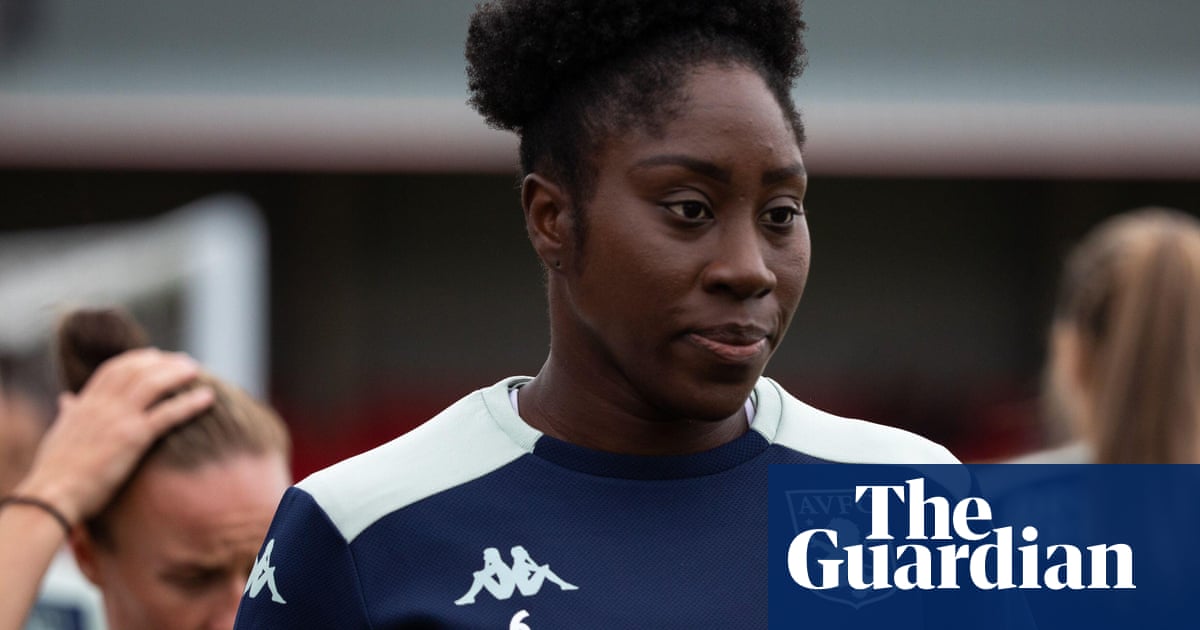Anita Asante: ‘People say I’m an activist but I just believe I found my voice’ - 4 minutes read

Aston Villa’s Anita Asante says she has had to adapt her game at the club. Photograph: AVFC WSL player in focus Anita Asante: ‘People say I’m an activist but I just believe I found my voice’ Aston Villa defender on speaking up for others, being kicked by boys in cage football and why the US was an eye-opener
“I’ve always been a believer that politics is all around us, it impacts us in our daily lives and if I have an opportunity to speak positively on things that impact me or people around me or society, then there’s no harm in that.”
“People might say I’m an activist but I just believe that I found my voice,” she says. “As a younger player I maybe didn’t have the confidence to speak up, but I had the views. And I didn’t feel that I had the platform or the opportunity, but now I do. I’ve been around people that have expressed their views and I’ve seen the impact it has. I want to do that for others. It’s just speaking up for others who might not have a voice in the game or outside of it. I just want to always strive for progress.”
Today girls come through a more structured and invested-in system and the technical level is being driven up but Asante does not feel her journey was inferior. “I got to experience playing with boys and men older than me,” she says. “To spend hours on the ball with them in a way that girls and women don’t get to do in their own professional environment. It’s a different kind of learning and vibe.
“My learning came from getting kicked and beat up against cage walls against boys and that tested me, that challenged me and that made me want to always prove myself. I wanted them to respect me, I wanted them to make me feel part of their group.”
“The US definitely developed me in terms of mentality,” she says. “Before that point, it was like: what is being a professional? What does that look like? What does that require? What were the expectations? I didn’t really know. I knew my environment, and I considered my environment a high-performance environment at the time, because we were successful; Arsenal, we were doing things that other clubs weren’t able to do. But then I got to America and I realised: ‘Oh my God, there’s a load more to this.’
“Sweden impacted me both on and off the pitch. There have been environments in the past where you could be 18 or 16, essentially an adult, but you’re still sort of communicated with like you’re a child or you’re in a structured institution. In Sweden everyone always felt equal and level. I also liked the social activist side of things there, the way the clubs always had a drive to be part of the community and brought that into the consciousness of the team. That sort of inspired my own personal social activism. I felt like yes, I am more than just a footballer, I can do more.”
“I’ve always considered myself a ball-playing defender … I haven’t always been able to do that within this team, last season in particular, but it’s made me realise how much more you have to think about the game as a whole, in terms of game management, taking more pragmatic decisions to just be robust and secure as a defender and not take as many risks. In free-scoring teams you might, as a defender, take those risks because you know you have world-class forwards and players that will go and do creative things and score goals.”
“One of our main ambitions is to get mid-table; sixth or seventh would be great,” says Asante. “We have to have realistic expectations of where the club is at in terms of overall experience in this division and in creating the identity that will help the team to be sustainable and keep growing long term but I think that’s a realistic target. Anything beyond that would be a bonus.”
Source: The Guardian
Powered by NewsAPI.org